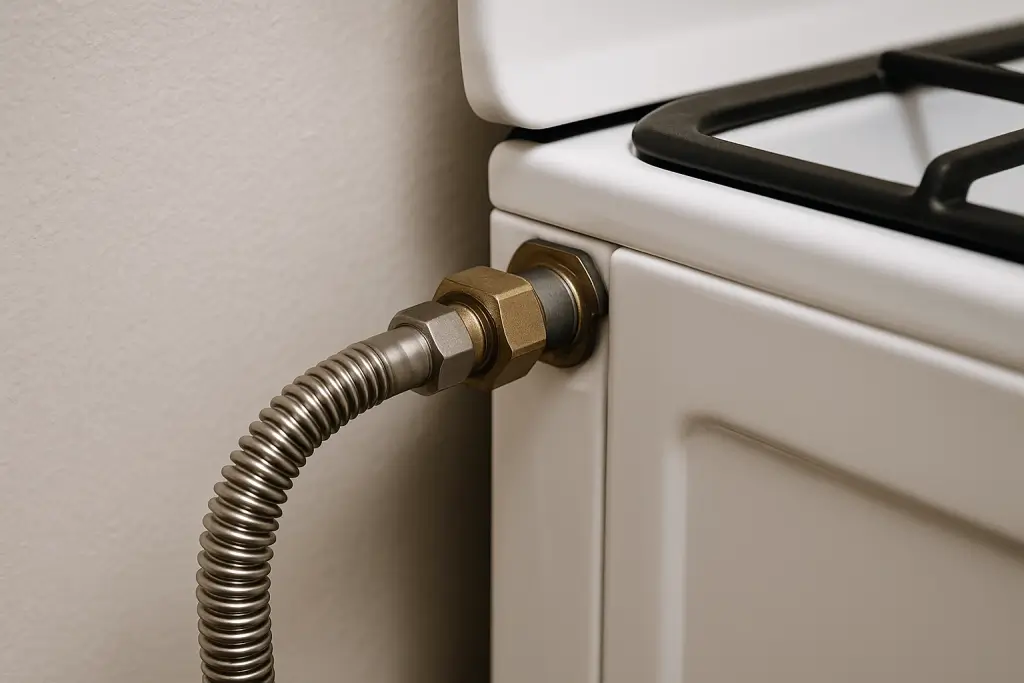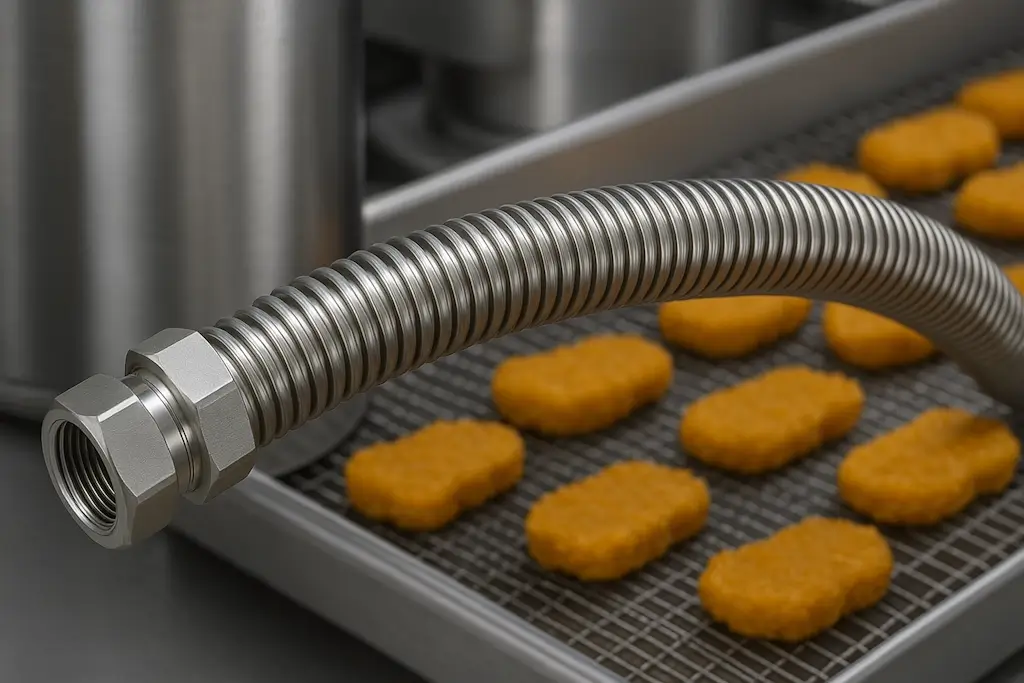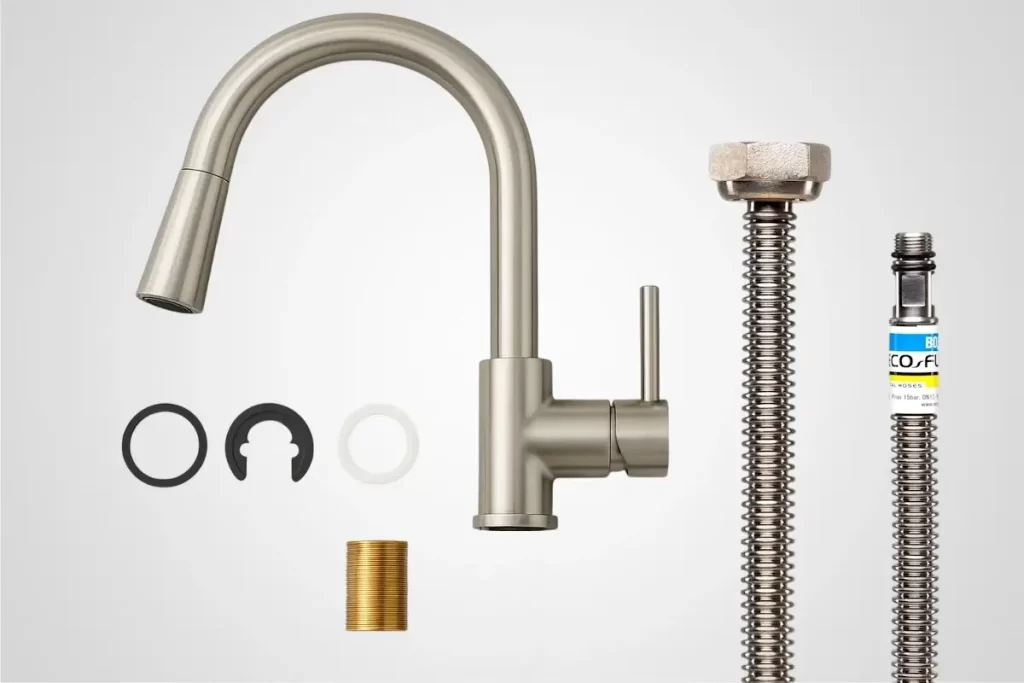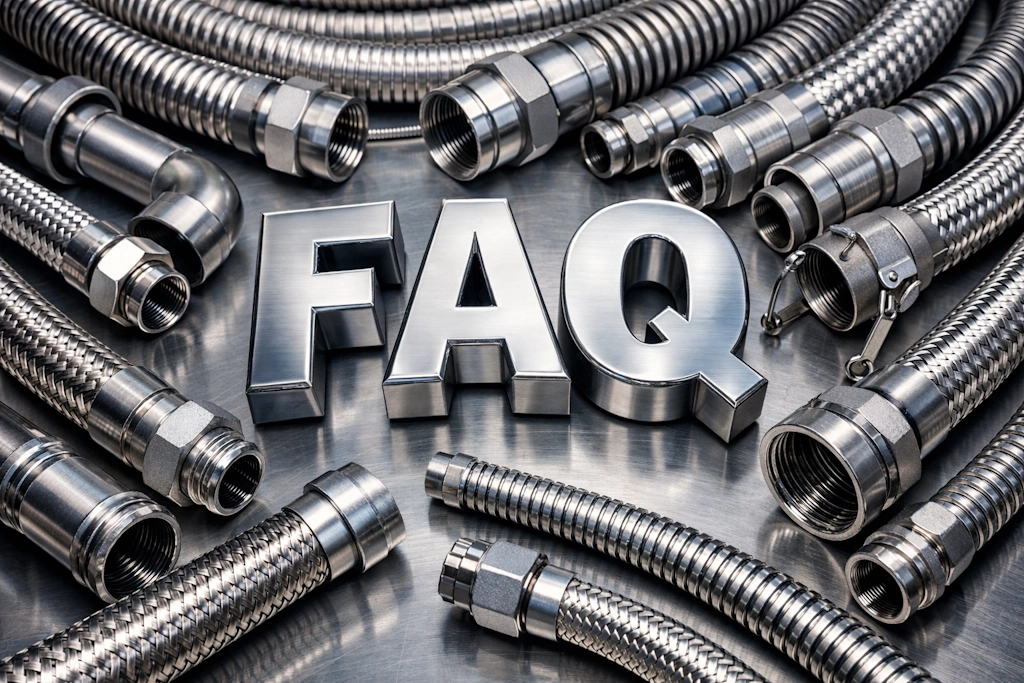Connecting a gas stove is not only a matter of comfort, but also safety. One of the main elements of the system is the gas hose to the stove. Its quality determines how reliably and long-lasting the equipment will work.
There are several options on the market, but more and more often users choose a bellows hose for a gas stove made of stainless steel. In this article, we will consider which hose for a gas stove is better, and why corrugated stainless steel is the optimal solution.
What are the hoses for connecting gas stoves?
There are 3 main types of gas hoses for connecting kitchen stoves.
1. Rubber hoses
This is a classic option that has been used for decades. The main advantages are low price and ease of installation. However, over time, rubber loses elasticity, cracks and becomes dangerous.
2. Reinforced rubber hoses
They have an additional braid, which increases strength. But the base remains rubber, so problems with material aging remain relevant.
3. Stainless steel bellows hoses
This is a modern gas hose for the stove, which combines flexibility and extreme durability. Thanks to the corrugated design and material – stainless steel – such hoses withstand high loads and last several times longer than rubber counterparts.
Advantages of bellows hoses for gas stoves
- Maximum safety – resistant to high pressure and temperature changes.
- Durability – service life can exceed 20 years.
- Corrosion protection – stainless steel is not afraid of moisture.
- Flexibility and easy installation – the flexible hose for connecting a gas stove is easy to install even in hard-to-reach places.
- Resistance to mechanical influences – difficult to damage by accidental impact or bending.
These are the advantages of gas hoses from Eco-Flex. All hoses in this line can be used to connect kitchen stoves.
How to choose the right gas hose for the stove
Check certification. A quality hose should meet safety standards and have certificates.
Choose the right length. The hose should not be too short or too long. Ideally, it should be without excessive tension or unnecessary loops.
Pay attention to the fittings. Connection ends are “nut-nut” and “nut-fitting”. The choice depends on the design of your stove and gas connection.
Dielectric insert. A modern gas supply for a stove may have a special dielectric insert. It protects the equipment from stray currents and extends its service life.
Conclusion
If you are choosing between rubber and metal, the advantage is clearly on the side of stainless steel. A bellows hose for a gas stove is the optimal solution that ensures safety, ease of installation and long-term operation.
A properly selected gas line for the stove guarantees you comfort and peace of mind in the daily use of gas equipment.



